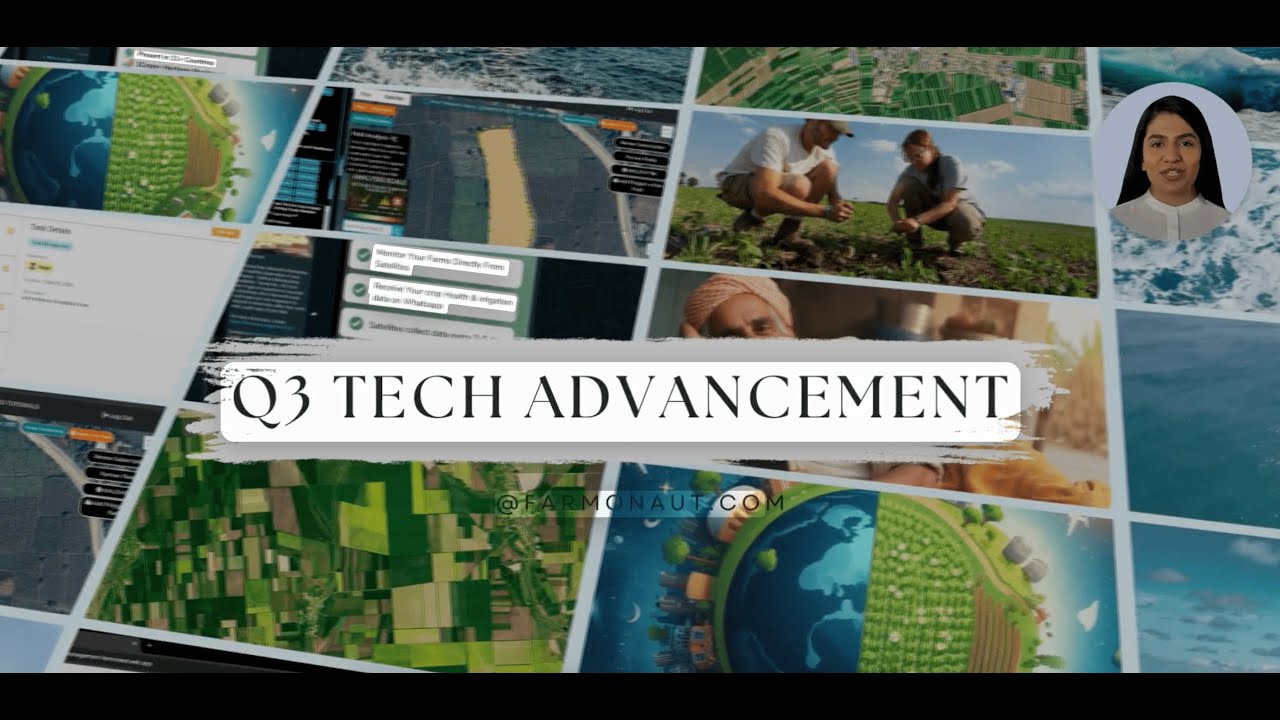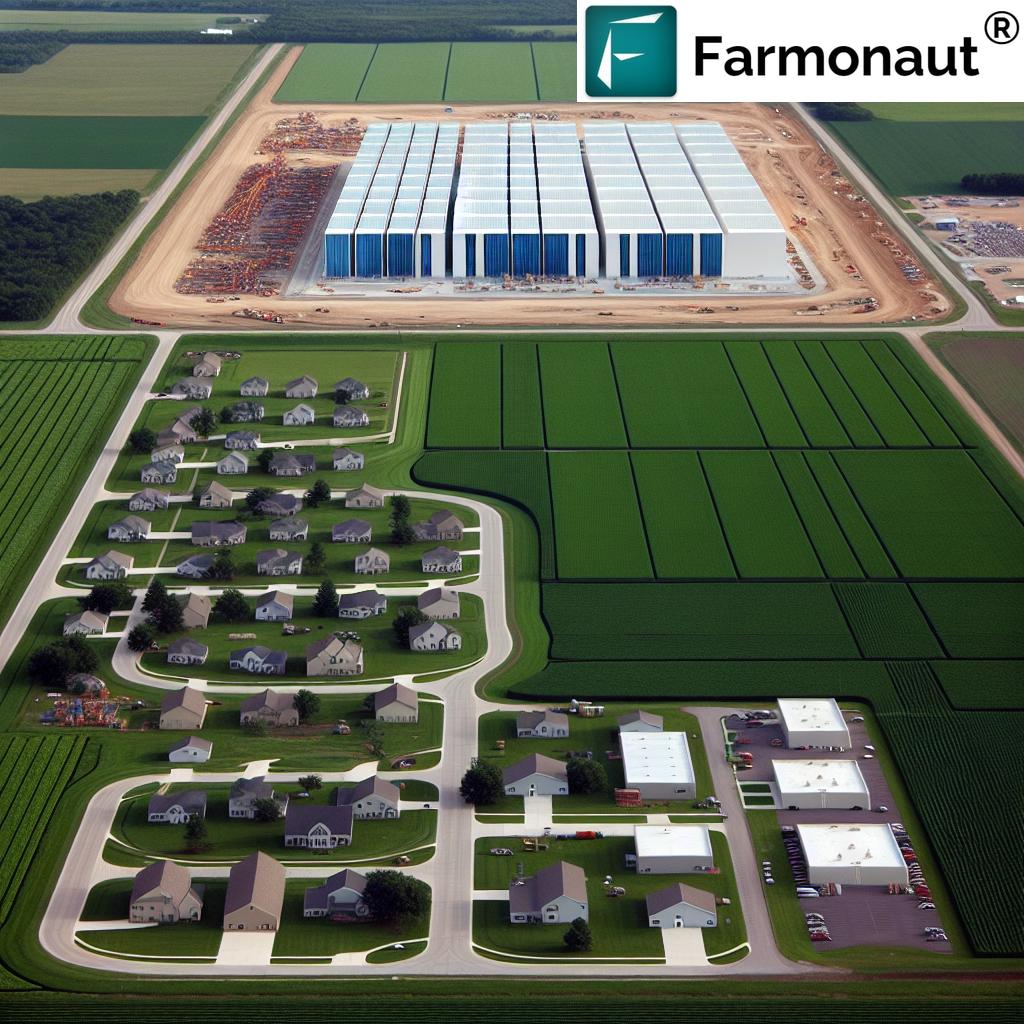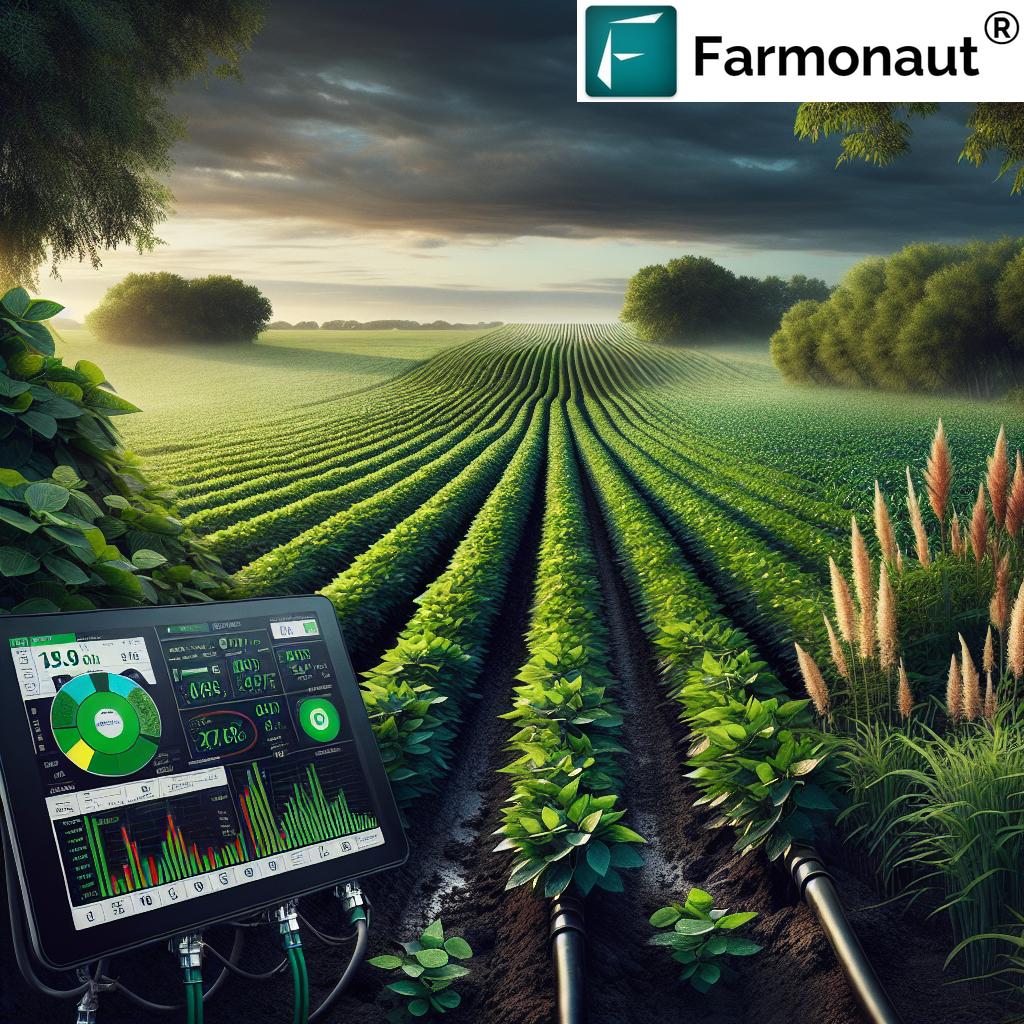Revolutionizing American Agronomy: How Philanthropy Fuels Crop Science Advancements and Sustainable Agriculture Education
“A pioneering agronomist’s 102-year journey led to a generous donation supporting vital programming for three major agricultural societies.”
In the ever-evolving landscape of American agriculture, we find ourselves at the crossroads of tradition and innovation. The field of agronomy, the science of soil management and crop production, has been undergoing a remarkable transformation, fueled by the power of philanthropy and the tireless efforts of dedicated scientists. Today, we delve into an inspiring story that exemplifies how individual contributions can spark a revolution in crop science advancements and sustainable agriculture education.
The Legacy of a Centenarian Scientist
At the heart of our story is Dr. Rosalind Morris, a pioneering agronomist whose extraordinary 102-year journey has left an indelible mark on the world of agricultural science. Her recent generous donation to the Agronomic Science Foundation (ASF) serves as a testament to her lifelong commitment to advancing crop research and sustainable farming practices.
Dr. Morris’s contribution is not just a financial endowment; it’s a catalyst for change that will ripple through the agricultural community for generations to come. This philanthropic act supports vital programming, including awards, lectureships, and service initiatives that benefit three pillars of American agronomic science:
- The American Society of Agronomy
- The Crop Science Society of America
- The Soil Science Society of America
These societies form the backbone of agricultural research and education in the United States, and Dr. Morris’s gift will undoubtedly amplify their impact.
The Power of Philanthropy in Agronomic Science
“Philanthropy in agronomy fuels research, awards, lectureships, and service initiatives, shaping the future of sustainable agriculture education.”
The role of philanthropy in advancing agricultural science cannot be overstated. Donations like Dr. Morris’s provide the necessary funding for groundbreaking research, educational programs, and technological innovations that are crucial for addressing the challenges faced by modern agriculture. Let’s explore some key areas where philanthropic efforts are making a significant impact:
Agronomy Research Funding
Research is the lifeblood of scientific progress, and in the field of agronomy, it’s no different. Philanthropic contributions fuel studies that explore:
- Soil health and conservation
- Crop resilience to climate change
- Sustainable farming practices
- Innovative pest management techniques
These research initiatives are vital for developing solutions that can increase crop yields, reduce environmental impact, and ensure food security for a growing global population.
Crop Science Advancements
The field of crop science is rapidly evolving, thanks in part to generous donations that support cutting-edge research. Some of the exciting advancements we’re seeing include:
- Development of drought-resistant crop varieties
- Genetic improvements for enhanced nutritional value
- Precision breeding techniques for optimal crop performance
- Exploration of novel crop species for diversified agriculture
These advancements are crucial for adapting to changing climatic conditions and meeting the nutritional needs of a diverse population.
Soil Science Initiatives
Healthy soil is the foundation of sustainable agriculture. Philanthropic support for soil science initiatives is driving progress in areas such as:
- Soil microbiome research
- Carbon sequestration techniques
- Soil erosion prevention strategies
- Development of organic soil amendments
These initiatives are crucial for maintaining soil fertility, mitigating climate change, and ensuring long-term agricultural sustainability.
The Ripple Effect of Agricultural Philanthropy
The impact of philanthropic contributions like Dr. Morris’s extends far beyond the immediate beneficiaries. It creates a ripple effect that touches various aspects of the agricultural sector and society at large. Let’s examine some of the key areas influenced by this generosity:
Sustainable Agriculture Education
Education is the cornerstone of progress in any field, and agriculture is no exception. Philanthropic support enables:
- Development of comprehensive curricula on sustainable farming practices
- Creation of scholarships for aspiring agronomists
- Funding for agricultural extension programs that reach rural communities
- Support for hands-on learning experiences through field studies and internships
By investing in education, we’re nurturing the next generation of agricultural leaders who will drive innovation and sustainability in the sector.
Agtech Innovation Grants
The intersection of agriculture and technology is giving rise to exciting innovations that are transforming farming practices. Philanthropic grants support:
- Development of AI-powered crop monitoring systems
- Creation of smart irrigation technologies
- Advancement of robotics for precision farming
- Research into blockchain applications for supply chain transparency
These technological advancements are crucial for improving efficiency, reducing resource use, and enhancing farm productivity.
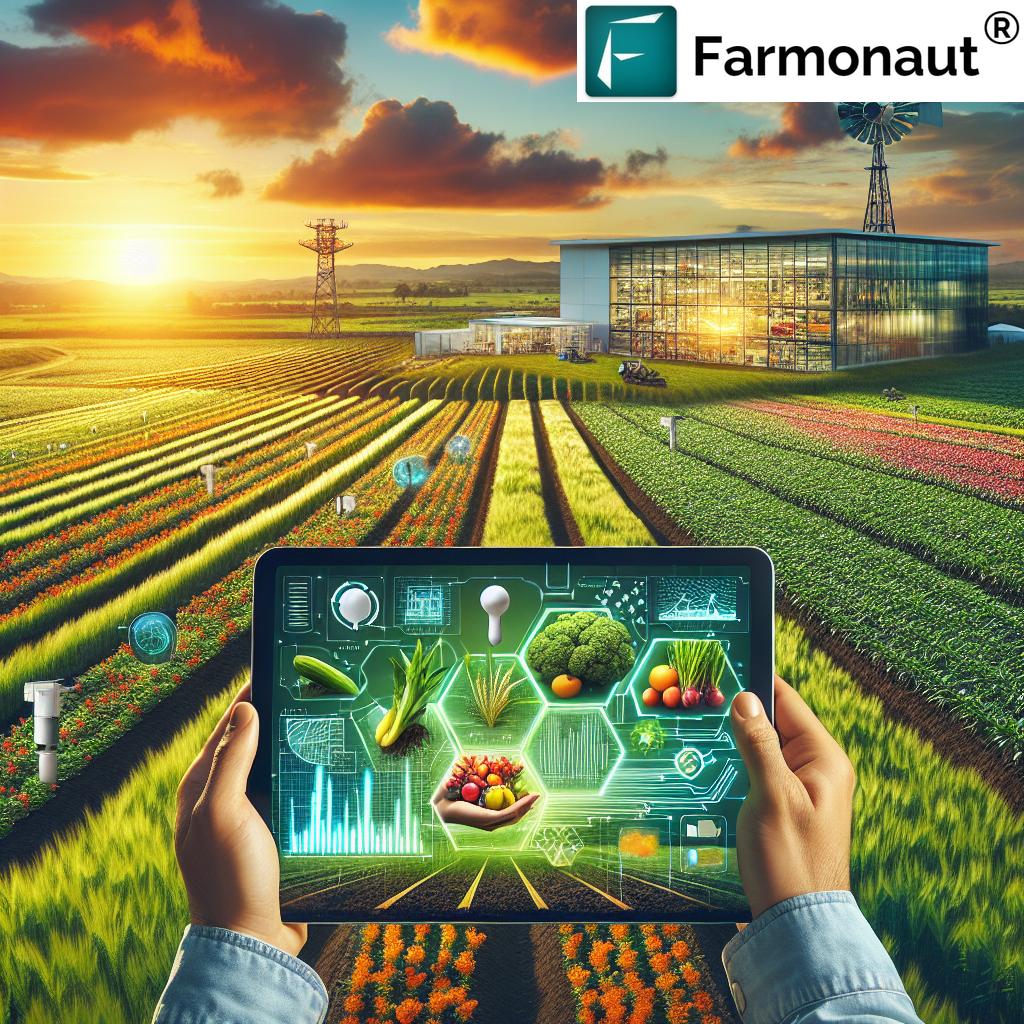
Precision Farming Technologies
Precision farming is revolutionizing agriculture by enabling farmers to make data-driven decisions. Philanthropic support in this area facilitates:
- Development of satellite-based crop monitoring systems
- Creation of soil sensors for real-time nutrient analysis
- Advancement of drone technology for field mapping and crop health assessment
- Research into variable rate application technologies for optimized resource use
These technologies are essential for maximizing yields while minimizing environmental impact.
Speaking of precision farming technologies, it’s worth noting the innovative solutions offered by companies like Farmonaut. Their satellite-based farm management platform provides valuable tools for real-time crop health monitoring and resource optimization. You can explore their services through their web app or mobile applications available for Android and iOS.



Agricultural Climate Change Solutions
Climate change poses significant challenges to agriculture, but it also presents opportunities for innovation. Philanthropic support is crucial for developing:
- Climate-resilient crop varieties
- Carbon-neutral farming techniques
- Agroforestry systems for enhanced carbon sequestration
- Water conservation technologies for drought-prone regions
These solutions are essential for ensuring food security in the face of changing climatic conditions.
The Impact of Dr. Morris’s Legacy
To fully appreciate the breadth of impact that Dr. Rosalind Morris’s contribution will have on the field of agronomic science, let’s take a closer look at the specific areas that will benefit from her generosity:
| Area of Impact | Description | Estimated Annual Beneficiaries |
|---|---|---|
| Research Grants | Funding for innovative studies in crop science and soil management | 500+ researchers |
| Sustainable Agriculture Education | Support for curriculum development and scholarships | 1,000+ students |
| Climate Change Solutions | Research into climate-resilient farming practices | 10,000+ farmers |
| Precision Farming Technologies | Development of advanced agricultural technologies | 5,000+ agtech professionals |
| Soil Science Initiatives | Studies on soil health and conservation techniques | 2,000+ soil scientists |
This table illustrates the wide-ranging impact of Dr. Morris’s philanthropy, touching various aspects of agronomic science and benefiting thousands of individuals across the agricultural sector.
The Role of Professional Societies in Advancing Agronomic Science
The three societies benefiting from Dr. Morris’s donation play crucial roles in shaping the future of American agriculture. Let’s explore their contributions:
American Society of Agronomy (ASA)
The ASA is at the forefront of agronomic research and education. Their initiatives include:
- Publishing peer-reviewed journals that disseminate cutting-edge research
- Organizing annual conferences for knowledge sharing and networking
- Providing professional development opportunities for agronomists
- Advocating for science-based agricultural policies
Crop Science Society of America (CSSA)
The CSSA focuses on advancing crop science through:
- Supporting research on crop breeding and genetics
- Promoting sustainable cropping systems
- Facilitating collaborations between crop scientists and industry partners
- Recognizing excellence in crop science through awards and fellowships
Soil Science Society of America (SSSA)
The SSSA is dedicated to enhancing understanding of soil science through:
- Conducting research on soil health and conservation
- Developing educational resources for soil scientists and land managers
- Promoting the importance of soil science in addressing global challenges
- Providing certification programs for soil science professionals
These societies collectively form a powerhouse of agricultural knowledge and innovation, and Dr. Morris’s contribution will significantly enhance their ability to drive progress in the field.
The Future of Agronomic Science: Trends and Opportunities
As we look to the future, several exciting trends are emerging in the field of agronomic science, many of which are being accelerated by philanthropic support:
1. Precision Agriculture
The integration of data analytics, IoT devices, and AI is revolutionizing farm management. Future developments may include:
- Advanced predictive modeling for crop yields
- Real-time pest and disease detection systems
- Autonomous farm equipment guided by AI
2. Sustainable Intensification
As global food demand increases, sustainable intensification will be crucial. Research in this area focuses on:
- Developing high-yield, low-input crop varieties
- Optimizing crop rotations for soil health
- Implementing agroecological practices at scale
3. Climate-Smart Agriculture
Adapting to and mitigating climate change is a top priority. Future initiatives may include:
- Developing crops with enhanced heat and drought tolerance
- Implementing large-scale carbon sequestration projects
- Creating climate-resilient farming systems
4. Bioengineering and Genetic Editing
Advancements in genetic technologies offer new possibilities for crop improvement:
- CRISPR-based gene editing for disease resistance
- Engineering crops for enhanced nutritional profiles
- Developing plants with improved photosynthetic efficiency
These trends represent exciting opportunities for research and innovation in agronomic science, many of which will be supported by philanthropic contributions like Dr. Morris’s.
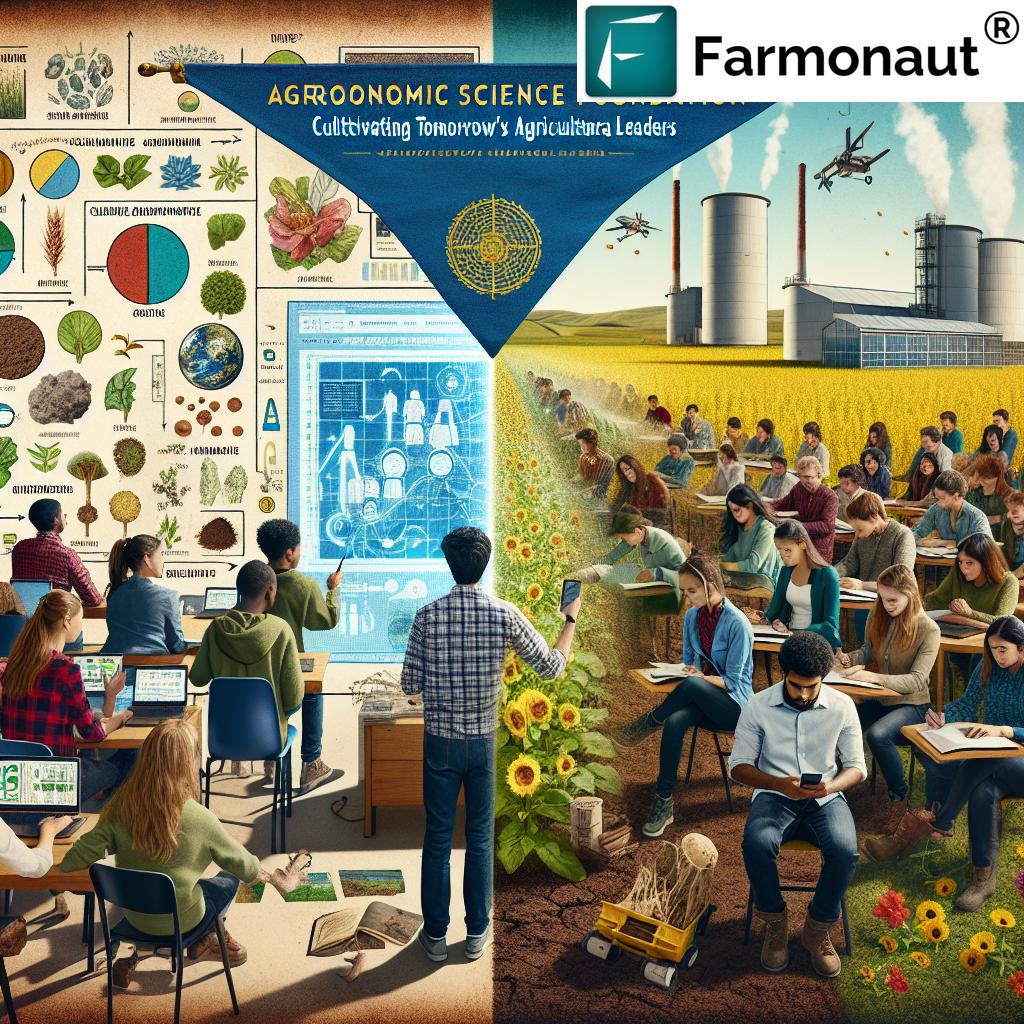
The Role of Technology in Modern Agriculture
Technology is playing an increasingly crucial role in advancing agricultural practices. Companies like Farmonaut are at the forefront of this revolution, offering innovative solutions that leverage satellite imagery and AI to provide valuable insights for farmers. Their platform exemplifies how technology can be harnessed to improve crop management and resource efficiency.
For those interested in integrating such technologies into their own agricultural systems or applications, Farmonaut offers an API that provides access to satellite and weather data. Developers can find comprehensive documentation for this API here.
The Importance of Continued Support for Agronomic Science
While Dr. Morris’s contribution is significant, the need for ongoing support in agronomic science remains crucial. Here’s why continued philanthropy and investment in this field are essential:
1. Addressing Global Food Security
With the world’s population expected to reach 9.7 billion by 2050, innovative agricultural solutions are needed to ensure food security. Ongoing research and development in agronomic science are vital for:
- Increasing crop yields sustainably
- Developing resilient food systems
- Reducing post-harvest losses
2. Mitigating Climate Change Impacts
Agriculture is both affected by and contributes to climate change. Continued support for agronomic science is crucial for:
- Developing climate-adaptive farming practices
- Reducing greenhouse gas emissions from agriculture
- Enhancing carbon sequestration in agricultural soils
3. Preserving Biodiversity
Modern agricultural practices can have significant impacts on biodiversity. Ongoing research is needed to:
- Develop farming methods that support ecosystem services
- Preserve genetic diversity in crop species
- Implement integrated pest management strategies that minimize harm to beneficial organisms
4. Improving Rural Livelihoods
Advancements in agronomic science can have profound impacts on rural communities. Continued support can help:
- Increase farm profitability through improved practices
- Create new job opportunities in agtech and related fields
- Enhance food security at the local level
How You Can Contribute to Agronomic Science
Inspired by Dr. Morris’s legacy? Here are ways you can contribute to the advancement of agronomic science:
1. Support Research Institutions
Consider donating to universities, research centers, or organizations like the Agronomic Science Foundation that are at the forefront of agricultural research.
2. Engage in Citizen Science
Participate in community-based research projects that contribute to our understanding of local ecosystems and agricultural practices.
3. Advocate for Science-Based Policies
Support policies that promote sustainable agriculture and fund agricultural research by engaging with your local representatives.
4. Pursue Education and Careers in Agronomy
Consider studying agronomy or related fields, or exploring career opportunities in agricultural science and technology.
5. Adopt Sustainable Practices
If you’re a farmer or gardener, implement sustainable practices on your own land and share your experiences with others.
6. Leverage Technology
Utilize advanced agricultural technologies, such as those offered by Farmonaut, to optimize your farming practices and contribute data to larger research efforts.
Conclusion: The Enduring Impact of Philanthropy in Agronomic Science
Dr. Rosalind Morris’s remarkable journey and generous contribution serve as a powerful reminder of the transformative impact that philanthropy can have on the field of agronomic science. Her legacy will continue to fuel crop science advancements, support sustainable agriculture education, and drive innovation in precision farming technologies for years to come.
As we face the challenges of feeding a growing global population in a changing climate, the importance of continued support for agronomic research and education cannot be overstated. Whether through financial contributions, advocacy, or direct participation in agricultural innovation, each of us has the potential to play a role in shaping the future of sustainable agriculture.
Let Dr. Morris’s example inspire us to consider how we can contribute to the ongoing revolution in American agronomy. By supporting the work of organizations like the American Society of Agronomy, the Crop Science Society of America, and the Soil Science Society of America, we can help ensure a sustainable and food-secure future for generations to come.
The story of Dr. Morris and the impact of her philanthropy reminds us that even a single individual can make a profound difference in the world of agriculture. As we move forward, let’s carry this spirit of generosity and commitment to scientific progress, working together to cultivate a more sustainable and bountiful future for all.
FAQ Section
Q1: What is agronomy, and why is it important?
A1: Agronomy is the science of soil management and crop production. It’s crucial because it helps develop sustainable farming practices, improve crop yields, and ensure food security for a growing global population.
Q2: How does philanthropy impact agricultural research?
A2: Philanthropy provides essential funding for research projects, educational programs, and technological innovations in agriculture. It supports studies that might not receive traditional funding and can accelerate progress in critical areas of agronomic science.
Q3: What are some current challenges in agriculture that agronomic science is addressing?
A3: Key challenges include climate change adaptation, sustainable intensification of food production, soil health preservation, water scarcity, and the development of resilient crop varieties.
Q4: How can individuals contribute to advancing agronomic science?
A4: Individuals can contribute by donating to research institutions, participating in citizen science projects, advocating for science-based agricultural policies, pursuing education or careers in agronomy, and adopting sustainable practices in their own gardens or farms.
Q5: What role does technology play in modern agriculture?
A5: Technology plays a crucial role in modern agriculture through precision farming techniques, AI-driven crop management, satellite-based monitoring systems, and advanced data analytics. These technologies help optimize resource use, improve crop yields, and enhance sustainability.




